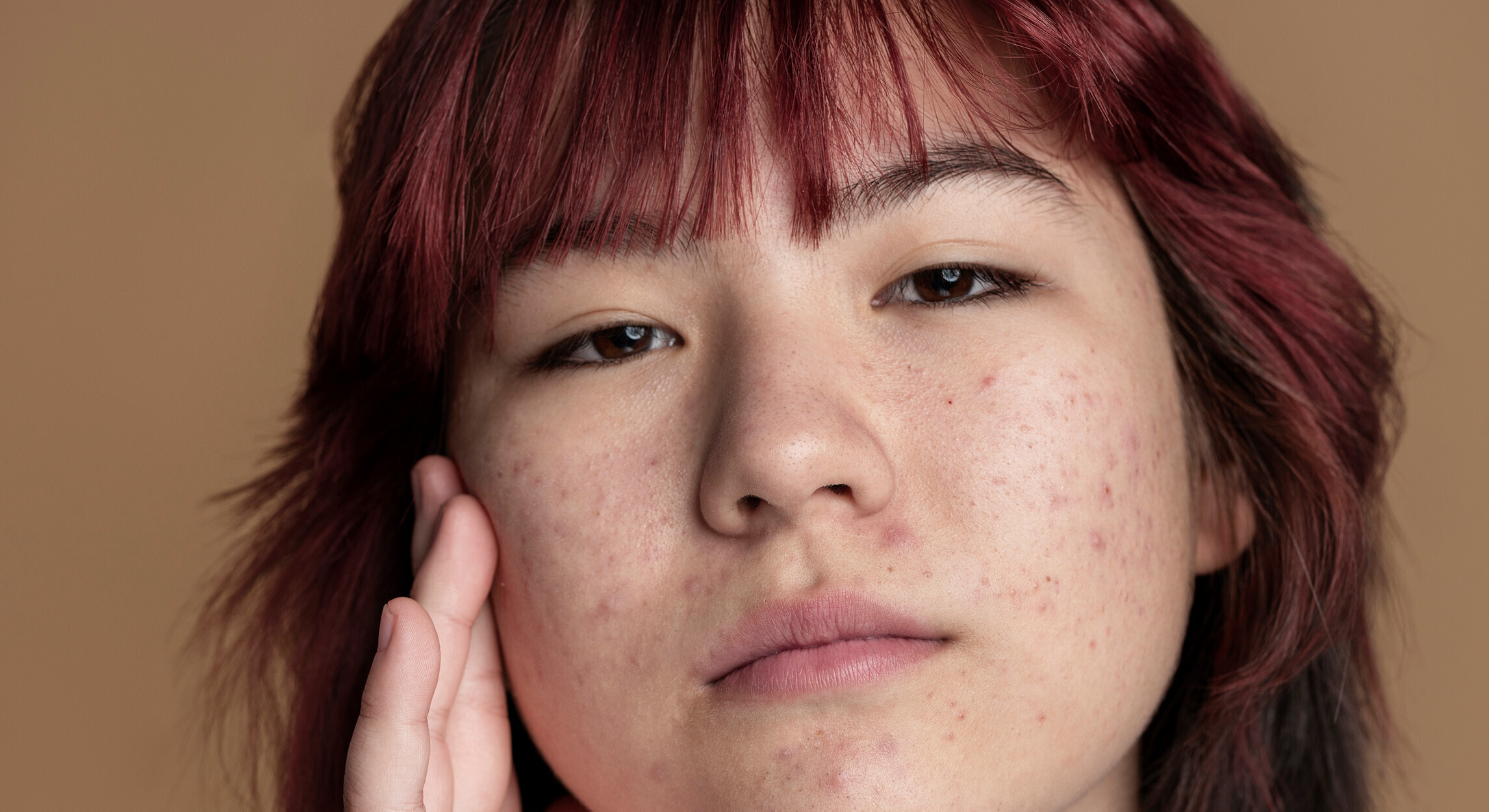The appearance of acne pimples does not only occur during adolescence: many adults remain prone to it, notably due to hormonal disturbances. Juvenile acne, hormonal acne or acne caused by stress, this skin disease can be seen in many different ways and is extremely common. Several plant oils can be used to get rid of these unsightly pimples and, to choose the most suitable one, you just need to define your skin type. Find out which plant oils to use against acne in this article!
Where does acne come from?
To eradicate acne pimples permanently, it is best to understand exactly where they come from. Human skin naturally produces a protective particle called sebum. This is formed under the skin's surface in the sebaceous glands and flows out through the skin's pores to cover it and thus protect it from external aggression. Acne is the result of a disturbance in this system: the sebaceous glands produce too much sebum, which becomes thick and allows dead skin to accumulate and clog the pores of the skin. The abnormally high presence of oil then contributes to the development of a bacterium naturally present on the skin, propionibacterium acnes, which leads to the appearance of acne pimples.
Jojoba oil to regulate sebum production and protect
One of the best-known oils for combating acne is jojoba oil. It comes in the form of a liquid wax, obtained from the seeds of the jojoba plant, found in Mexico and southern California. It contains a lot of vitamin E & linoleic acid and its composition is very similar to that of human sebum. As a result, the body assimilates it perfectly and automatically regulates itself by detecting the presence of excess natural fat on the skin's surface. In addition to rebalancing sebum production, jojoba oil has real regenerative and healing properties, which is very valuable for repairing the damage caused by acne pimples. It seems to be ideal for reducing pimples and irritation and giving the skin a new glow.
Nigella oil to purify and regenerate
Nigella oil, often recommended for treating oily skin, has similar properties to jojoba oil. Coming from the seeds of nigella flowers, its composition is also very similar to that of the sebum naturally produced by the sebaceous glands. Regular application therefore leads to the spontaneous regulation of the production of fat on the skin's surface. Black cumin oil also has healing and anti-inflammatory effects, which are ideal for repairing and strengthening the skin and for soothing irritation and redness after an acne outbreak.
Hazelnut oil to protect the skin
Hazelnut oil, like the other two, also has sebum-regulating properties. Very rich in unsaturated fatty acids, it is very well absorbed by the body and helps to regulate sebum production, as well as purifying and protecting the skin in depth. Like black cumin oil, it helps heal pimples and blemishes caused by acne and leaves the skin surface radiant and perfectly healthy.
Choosing a plant oil for acne
All three acne plant oils have similar properties, so there are a few additional criteria to consider when choosing the right one. First of all, it is best to select products sold as "cosmetic oils", which are specially designed to be easily assimilated by the body. These are virgin oils from the first cold pressing, which benefit from a regulated designation. Then, it is important to orientate your choice according to your skin type. There are four different types: oily, combination, normal and dry. This index makes it possible to decide between the various existing solutions.
Which oil for which skin type?
The three oils presented above are perfectly suited to naturally oily skin, because of their sebum-regulating properties. On the other hand, in the presence of dry skin, certain products can have counter-productive effects and deregulate sebum production. For this reason, people with acne on dry skin are advised to use jojoba oil, which is very nourishing. It is also very suitable for mixed and normal skin, which it balances thoroughly, and can also be used to treat rapidly regrowing scalps. Similarly, black cumin oil is more suitable for skin that naturally produces a lot of sebum and also helps to reduce the oily hair effect. On the other hand, when the skin naturally has more imperfections than those resulting from an acne outbreak, hazelnut oil seems more appropriate. It is still more effective in healing and purifying any spots and pimples.
Before applying a vegetable oil to the face, it is often recommended to thoroughly cleanse the face the night before in order to remove any residue of grease or acne that has accumulated on the surface.










